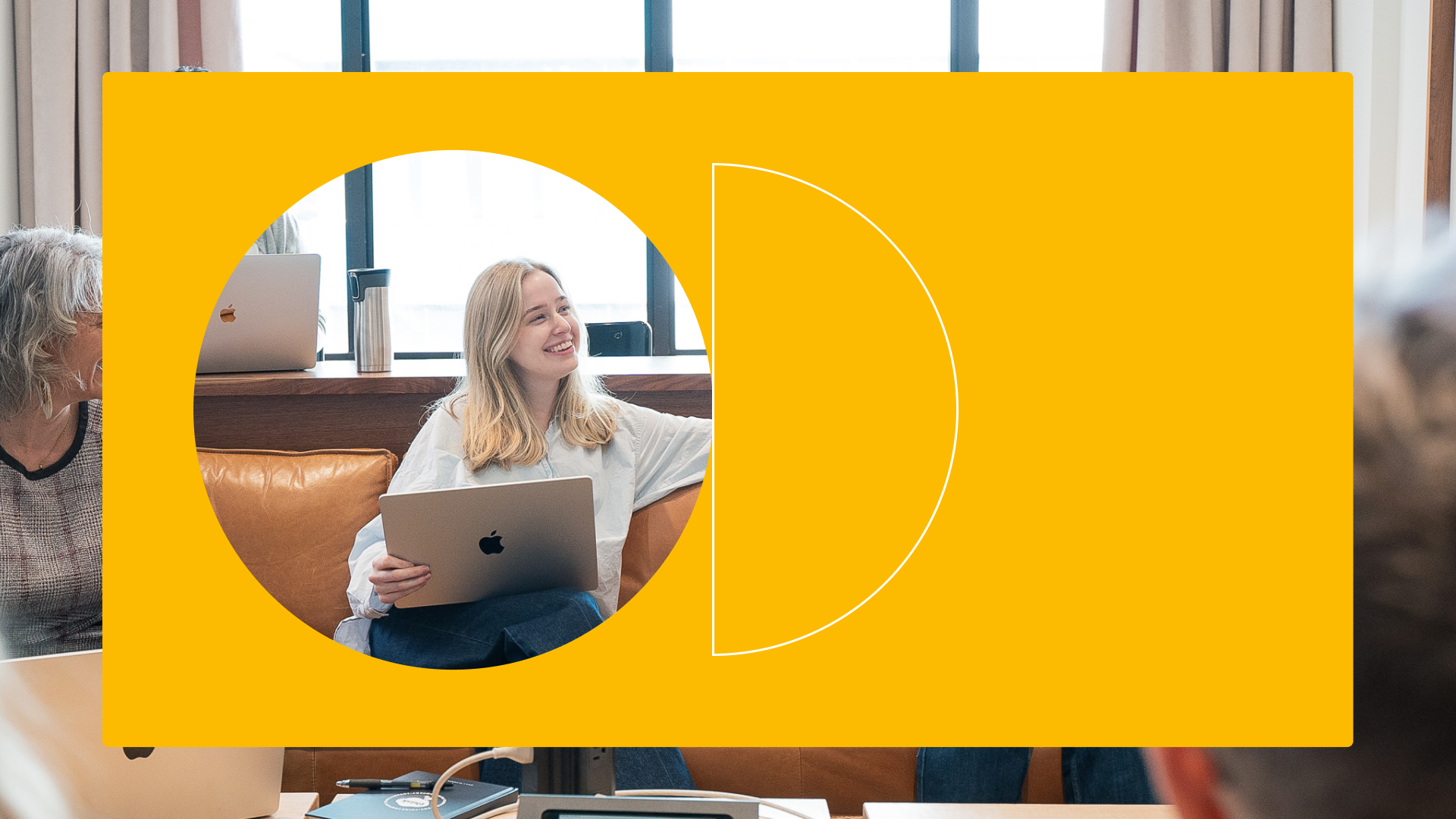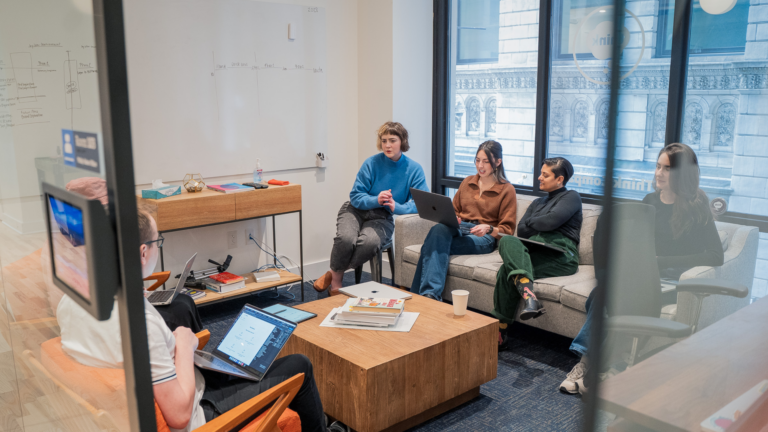5 benefits to hiring an independent design firm over a big-name consultancy

As a design-minded leader in your industry tasked with moving complex initiatives forward, you’re often weighing different paths to getting this work done successfully. Assuming you’ve already decided to hire a third party rather than build a team in house, you’re now facing another tough decision:
- Hire a large, experienced, big-name consultancy that many of your peers and competitors know
- Take a chance on a small, up-and-coming agency with a budding reputation
- Find another option somewhere in the middle
As a fiercely independent UX consulting firm in operation for almost two decades, we’d consider ourselves that strong middle ground. And given the title of this blog post, it’s obvious we believe in the value we provide to organizations like yours. But we also realize it’s difficult for leaders in your position to really see the difference between those paths unless you’ve had first-hand experience.
Below are the primary ways mature independent firms often outperform other third-party options—especially the bigger, more familiar consulting brands you may be considering.
1. You’ll get depth of experience
When looking for design consulting support, it’s important to see examples of how firms have solved similar problems for other organizations or who have worked deeply in your industry—or both. And it’s true that many large consultancies have a wide range of experience across a large number of service areas, industries, client analogs, etc.
But big consultancies need to be very big to operate at this kind of scale—which often means they’ll lean on hiring low-cost, inexperienced contributors with traditionally lower tenure and highly-limited strategic insight.
This typically leads to engagements that lack depth in more ways than one.
At the same time, smaller UX agencies are often still building up experience and don’t offer the knowledge of known solutions based on years of experience.
Mature independent UX firms tend to sit between these two options for a few reasons:
- They’re experienced enough to be highly knowledgeable in key industries and the solutions that work—and they’re now very skilled at implementing them.
- They know enough to anticipate the exact roadblocks and potholes clients will hit, and they plan accordingly as a default.
- Talent isn’t turning over at as high of a rate (more on that below), so the individuals on your project team are often more tenured and contributing from a strategic place. Gartner states that the average tenure at a big UX consultancy is 1-2 years, while our average is 3.5.
2. Your team will be stacked with high performers
An organization’s culture will always show up in their partnership with you through team health and ability to collaborate effectively.
It’s common for very large UX consultancies to consolidate with existing firms. But it’s also common (we’ve seen it many times!) for those employees to slowly leave the new, huge company they’re part of in favor of a place with a more centralized and focused culture. Strong contributors tend to want to work in a place where they don’t feel like a number.
And while smaller agencies are often highly focused on culture to attract talent, they’re still struggling with the growing pains involved in providing enough infrastructure, resources, and opportunity for their team, which can drive strong talent away.
Mature independent firms have an edge in attracting the best talent in the industry because:
- They are driving against realistic goals (rather than being pressured by investors to grow fast), so business decisions are based on empathy for people—which contributes to everyone feeling better at work.
- They have the structure and resources already in place to support high achievers in planning their careers, doing their best work, and developing expertise in their areas of interest.
- They don’t usually attract people who are simply chasing clout for their resumes.
3. Your investment goes further
Rates differ across firms, but the way UX firms work against a set budget and timeline will also vary—and this has the biggest impact on how sound your investment turns out to be in the end.
Like other large-scale organizations, big consultancies bring internal processes that can make things messy—excessive meetings, unclear decision-making structures, overcomplicated solutions, and ineffective project management, to name a few—which all lead to wasted time and resources. And while smaller firms are less bloated, they still haven’t built up the maturity to plan for avoidable pitfalls. Our expansive team of UX designers, developers, content and product strategists can help! Are you ready to work with a UX partner?
Mature independent firms work more efficiently because:
- Without an overly-structured hierarchy, they have the flexibility to make decisions based on experimentation and feedback. This keeps them innovative.
- Their independence allows them to scope work responsibly without pressure to deliver mediocre work on an unreasonable schedule.
- Because getting mediocre things done fast is (unfortunately) common in large-scale design consulting, independent firms are experienced at fixing problems that other consultancies leave behind trying to implement quick fixes.
4. You’ll interact with everyone on your project team
Team makeup always affects the level of regular collaboration you’ll experience, as well as your access to specialists and technical experts.
As mentioned above, large consultancies commonly hire talent abroad in order to work at scale, which means that a portion of those contributors are less likely to be part of the core team you interact with. At the same time, smaller agencies tend to have a smaller pool of talent and higher rates of generalists rather than a mix of deep specialists who work dynamically.
Mature independent firms bring a specific kind of team makeup to an engagement:
- They don’t need to offshore talent at such a massive scale, so you’ll meet everyone on your team and will be able to ask questions, learn more about something you don’t understand, and give feedback directly.
- They usually have a mix of specialists, senior advisors, project managers, and more who are highly focused on their role on the project and what they bring to the big picture.
5. Long-term impact is a priority—but you won’t get trapped
Lastly, firms vary a lot in terms of how they think about the impact of digital initiatives in the first place.
Large consultancies are often accustomed to executing against the task at hand without thinking strategically about larger organizational and industry impact, as we’ve already mentioned (non-strategic team contributors lead to lower strategic impact). And, small UX agencies are often tackling specific challenges for the first time. While fresh insights are good, knowing what’s going to provide lasting change takes experience.
By design, mature independent firms aim to make as much of an impact within the stated timeline while setting you up for success later:
- Their reputation is extremely important to their long-term credibility as an organization, so how they’re remembered during the project and after the engagement is always top-of-mind.
- They don’t make a habit of elbowing their way into your tech stack to make it expensive and difficult to part ways. To the point above, it benefits these UX firms to make a lasting impression by setting you up for success after you say goodbye.
Mature, independent firms are a powerful force in your corner
Choosing between potential design and technology partners can be overwhelming—and organizations should make the best decision for their teams and goals. We’re confident about what makes independent firms like Think Company a smart choice: we offer a “goldilocks” option for ambitious companies who want deep knowledge, exceptional teams, and overall bang for your buck—bringing the experience of an established firm and the flexibility of a startup. If that sounds exciting to you, we’d love to talk more.
Reach out to get a conversation started today.



